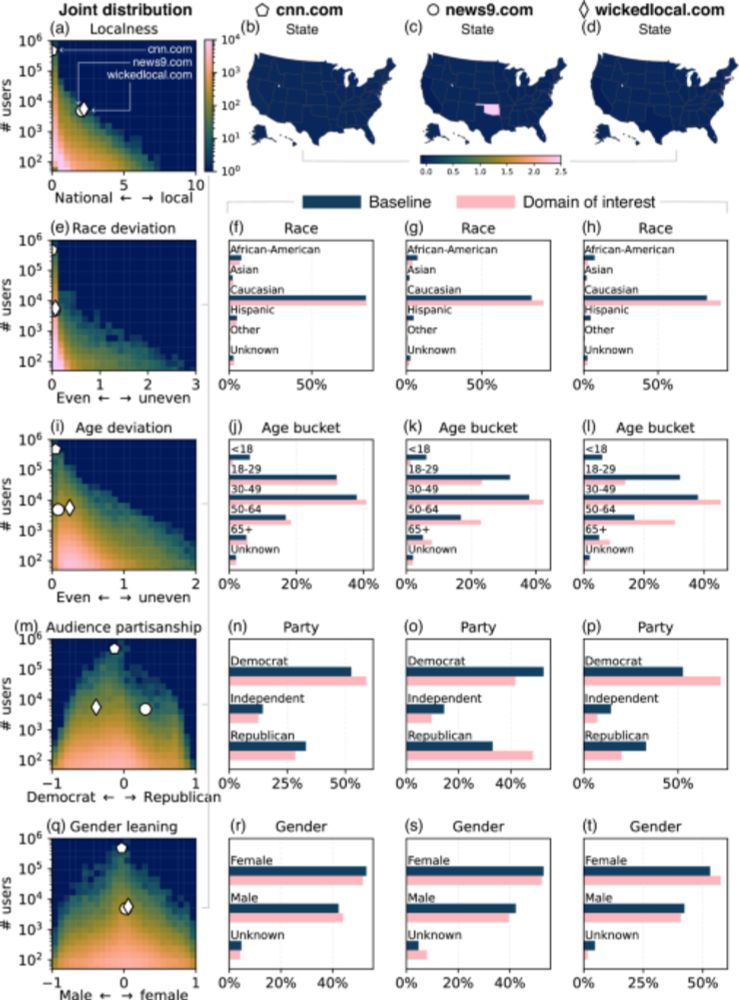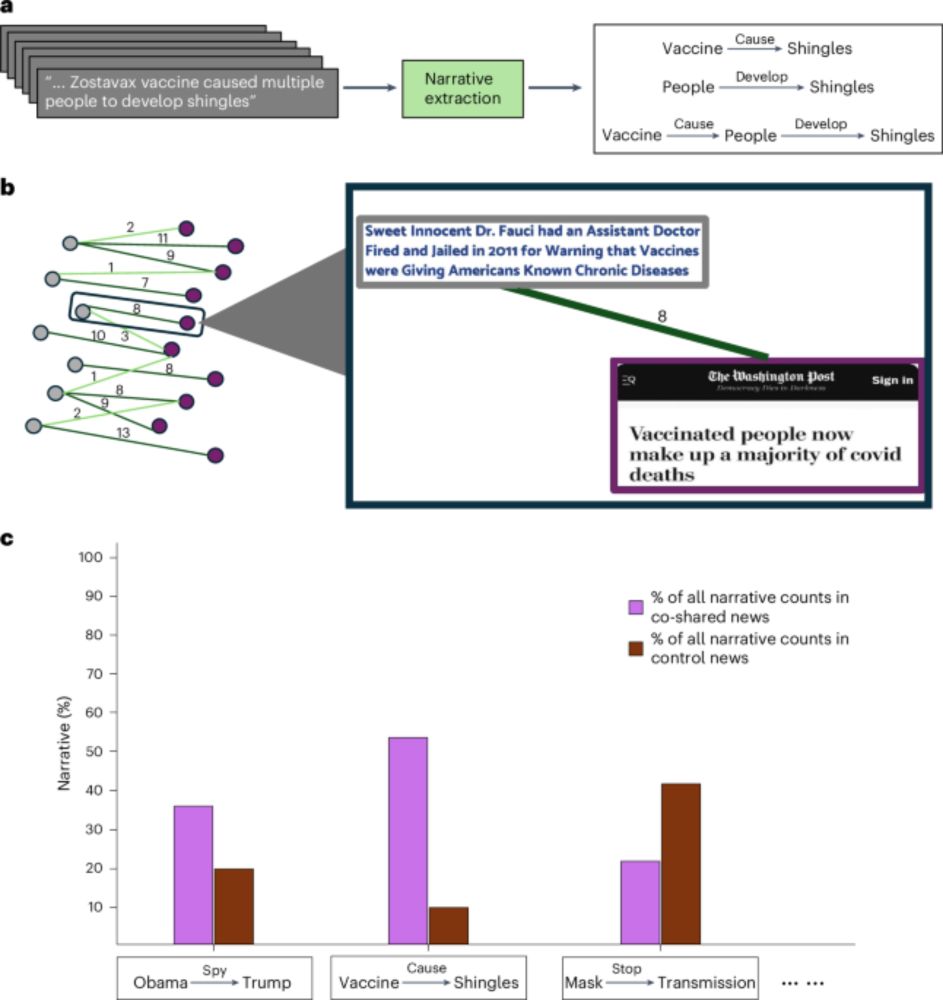Pranav Goel
@pranavgoel.bsky.social
Researcher: Computational Social Science, Text as Data
On the job market in Fall 2025!
Currently a Postdoctoral Research Associate at Network Science Institute, Northeastern University
Website: pranav-goel.github.io/
On the job market in Fall 2025!
Currently a Postdoctoral Research Associate at Network Science Institute, Northeastern University
Website: pranav-goel.github.io/
Reposted by Pranav Goel
AI data centers are straining already fragile power and water infrastructures in communities around the world, leading to blackouts and water shortages. “Data centers are where environmental and social issues meet,” says Rosi Leonard, an environmentalist with @foeireland.bsky.social.

From Mexico to Ireland, Fury Mounts Over a Global A.I. Frenzy
www.nytimes.com
November 4, 2025 at 6:40 PM
AI data centers are straining already fragile power and water infrastructures in communities around the world, leading to blackouts and water shortages. “Data centers are where environmental and social issues meet,” says Rosi Leonard, an environmentalist with @foeireland.bsky.social.
Reposted by Pranav Goel
LLMs are often used for text annotation, especially in social science. In some cases, this involves placing text items on a scale: eg, 1 for liberal and 9 for conservative
There are a few ways to accomplish this task. Which work best? Our new EMNLP paper has some answers🧵
arxiv.org/pdf/2507.00828
There are a few ways to accomplish this task. Which work best? Our new EMNLP paper has some answers🧵
arxiv.org/pdf/2507.00828

October 27, 2025 at 2:59 PM
LLMs are often used for text annotation, especially in social science. In some cases, this involves placing text items on a scale: eg, 1 for liberal and 9 for conservative
There are a few ways to accomplish this task. Which work best? Our new EMNLP paper has some answers🧵
arxiv.org/pdf/2507.00828
There are a few ways to accomplish this task. Which work best? Our new EMNLP paper has some answers🧵
arxiv.org/pdf/2507.00828
Reposted by Pranav Goel
ICYMI, our DomainDemo dataset, which describes how different demographic groups share domains on Twitter, is now available to download!
📄 Data descriptor: doi.org/10.1038/s415...
📈 Interactive app to explore the data: domaindemo.info
💽 Dataset: doi.org/10.5281/zeno...
📄 Data descriptor: doi.org/10.1038/s415...
📈 Interactive app to explore the data: domaindemo.info
💽 Dataset: doi.org/10.5281/zeno...

DomainDemo: a dataset of domain-sharing activities among different demographic groups on Twitter - Scientific Data
Scientific Data - DomainDemo: a dataset of domain-sharing activities among different demographic groups on Twitter
doi.org
July 21, 2025 at 1:58 PM
ICYMI, our DomainDemo dataset, which describes how different demographic groups share domains on Twitter, is now available to download!
📄 Data descriptor: doi.org/10.1038/s415...
📈 Interactive app to explore the data: domaindemo.info
💽 Dataset: doi.org/10.5281/zeno...
📄 Data descriptor: doi.org/10.1038/s415...
📈 Interactive app to explore the data: domaindemo.info
💽 Dataset: doi.org/10.5281/zeno...
There's a lot of concern out there about online misinformation, but when we try and measure it by identifying sharing of/traffic to unreliable sources, it looks like a tiny share of users' information diets. What gives?
June 11, 2025 at 3:39 PM
There's a lot of concern out there about online misinformation, but when we try and measure it by identifying sharing of/traffic to unreliable sources, it looks like a tiny share of users' information diets. What gives?
Reposted by Pranav Goel
Goel et al. examine why some factually correct news articles are often shared alongside fake news claims on social media. @pranavgoel.bsky.social @jongreen.bsky.social @davidlazer.bsky.social
www.nature.com/articles/s41...
www.nature.com/articles/s41...

Using co-sharing to identify use of mainstream news for promoting potentially misleading narratives - Nature Human Behaviour
Goel et al. examine why some factually correct news articles are often shared by users who also shared fake news articles on social media.
www.nature.com
June 10, 2025 at 4:12 PM
Goel et al. examine why some factually correct news articles are often shared alongside fake news claims on social media. @pranavgoel.bsky.social @jongreen.bsky.social @davidlazer.bsky.social
www.nature.com/articles/s41...
www.nature.com/articles/s41...
Reposted by Pranav Goel
If you are at #WebSci2025, join our "Beyond APIs: Collecting Web Data for Research using the National Internet Observatory" - a tutorial that addresses the critical challenges of web data collection in the post-API era.
national-internet-observatory.github.io/beyondapi_websci25/
national-internet-observatory.github.io/beyondapi_websci25/
May 15, 2025 at 9:12 PM
If you are at #WebSci2025, join our "Beyond APIs: Collecting Web Data for Research using the National Internet Observatory" - a tutorial that addresses the critical challenges of web data collection in the post-API era.
national-internet-observatory.github.io/beyondapi_websci25/
national-internet-observatory.github.io/beyondapi_websci25/
Reposted by Pranav Goel
If you study networks, or have been stuck listening to people who study networks for long enough (sorry to my loved ones), you may have heard that open triads – V shapes – in social networks tend to turn into closed triangles. But why does this happen? In part, because people repost each other.
April 1, 2025 at 8:00 PM
If you study networks, or have been stuck listening to people who study networks for long enough (sorry to my loved ones), you may have heard that open triads – V shapes – in social networks tend to turn into closed triangles. But why does this happen? In part, because people repost each other.

